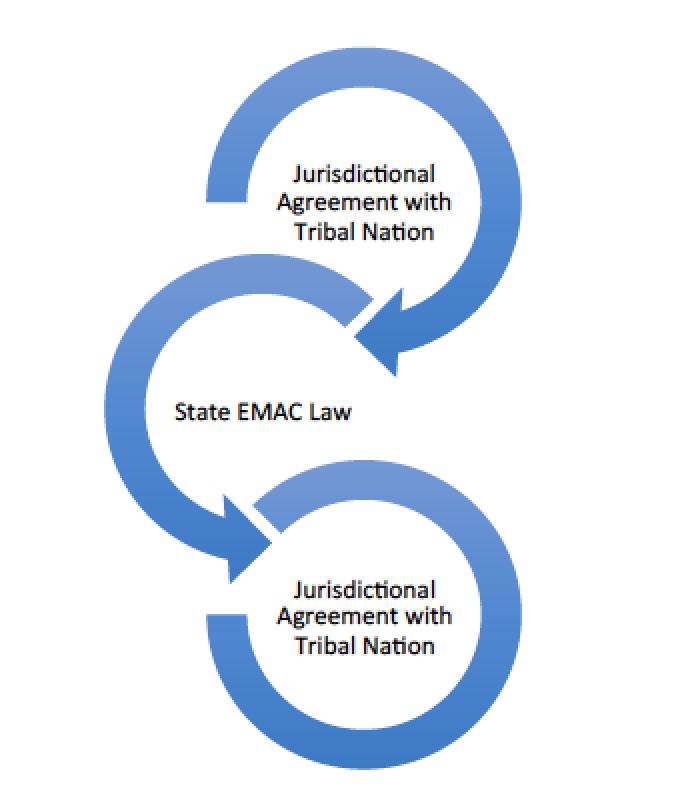 Mutual aid agreements between Tribal Nations and U.S. Cities and States elevates in need as the severity of disasters increase and emergency management is called to assist in the safety and protection of their communities and surrounding communities.
Mutual aid agreements between Tribal Nations and U.S. Cities and States elevates in need as the severity of disasters increase and emergency management is called to assist in the safety and protection of their communities and surrounding communities.This second survey that focused on mutual aid ageements between states/cities and Tribal Nations found that Tribal Nations are supported through State networks and Local mutual aid agreements.
Further, Tribal Nations are invited in participation of major exercises and training opportunities. In comparison to the 2007 survey results, there is little change in mutual aid agreements at the State level.
The biggest difference between the 2007 and 2017 surveys was broadening the audience to include local representation. This provided in-‐depth insight on the partnerships Tribal Nations have with other Tribal Nations in addition to their local jurisdictions.
While Local government supports resource requests; the States appear to be the authority when it comes to providing assistance to Tribal Nations through formalized mutual agreements. Further, the survey indicated no differences in mutual aid integration based upon whether or not a Tribal Nation was Federally or State recognized.
The best practice is clearly the use of statewide mutual aid agreements inclusive of Tribal Nations as jurisdictions to ensure the acceptance of when and how to provide support. These agreements also enable a State to utilize the Emergency Management Assistance Compact (EMAC) to support Tribal Nations.
Two models for best practices:
